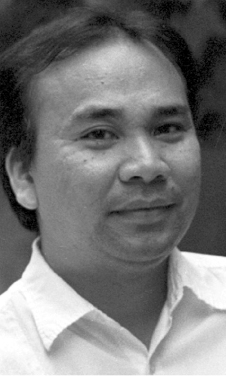
Jobers Bersales
Robin Padilla’s fatherly advice to a Korean contestant to learn Tagalog during the latest episode of “Pilipinas Got Talent” on ABS-CBN runs into the continuing discourse on the national language and the colonial experience.
He may not have intended it that way but Padilla’s lament allows one to ponder on why a Korean living in Manila for 10 years already and with a Filipina girlfriend to boot, has not learned Tagalog, the lingua-franca of over 20 million residents there.
The issue is not racism as some have painted the feisty action-star Padilla, who is in his rights to assert the use of his native language. The issue, rather, is language itself and why a Korean can live for 10 years in this country and did not even bother to learn the local tongue. Obviously he is no longer here just to learn English as most Koreans do.
One wonders for example, why the Pinay girlfriend, presumably herself a Tagalog-speaker, did not even attempt to teach her boyfriend her own mother tongue. Writ large, one must also wonder why immediately turn to English when communicating with a foreigner, regardless of color or appearance, instead of using our native tongue in the manner of, say, the Japanese, Germans, Vietnamese, or even Koreans in shops, stores, stalls and public markets.
In Japan, no matter if Japanese shopkeepers knows you’re not Japanese, they will communicate with you in Nippongo, unless they know some English, of course. But even at that, a Japanese or Vietnamese who can speak a smattering of English will first hesitate and be apologetic that their command of English is at best rudimentary.
Not the Filipino. Over forty years under the tutelage of the Americans have left an indelible imprint on our psyche and on our tongue, literally, in that amidst all the cacophony of some 125 languages and sub-languages or dialects, what actually allows us to communicate fully — especially those among the educated class — is the use of English. And, boy, how oh so many of our compatriots, especially the young, flaunt their American-accented English in public to the point of being ridiculously stupid nowadays: Brown-skinned natives clearly never been to the United States speaking like they grew up in, say, California! But who’s to blame them?
It is precisely our command of English and the Filipino adaptability, able to physically transform the tongue’s movements to churn out American-accented English that makes it difficult for a foreigner in the Philippines to learn the native language.
There are exceptions, of course, like one of my female Korean archaeology students, whom I wrote about in a previous column, who spoke a smattering of Cebuano, or the former on-the-job-trainee of Museo Sugbo sometime in 2011, another female Korean, who could speak Cebuano fluently.
Language is a very powerful tool not just to communicate but also to show power relations. And Robin Padilla actually mentioned this in that episode when he said that just because one comes from a rich or powerful nation, one should never get away with not learning the local language. It was a bit harsh on the Korean youth but on larger scale, i.e., between nations, language can and has been used as a tool to conquer nations.
This is in fact the tragedy of the Philippines. We speak the language of a former colonial master and even dream in English (especially after watching an English movie) and yet we are prevented from entering U.S. shores without a valid visa. There are countries whose citizens can enter the U.S. without visas, mind you, but not the Philippines, her former colony whom she taught to speak her language. The very language Americans used to subdue us and align us with her aspirations and values can also be the very tool we can foist against her. And so one can at once sense the fear of the U.S. of being overwhelmed by our population should America remove any visa restrictions.
On the other hand, our talent at aping American English is the very reason why many of our youths have immediate jobs at call centers.
In a sense, English is a double-edged sword and Robin Padilla had unsheathed it but showed only one sharp edge: That it has so pervaded the atmosphere to the point of almost poisoning the native language.
And with federalism just around the corner, there will be debates on what state language will be adopted in, say for example, the Visayas, which is being mulled as one of the four or five federal states. The Visayas alas is not just marked by one monolithic language; there are three major ones: Bisaya (or Cebuano); Hiligaynon and Waray.
At best therefore, Robin Padilla’s lament should be everyone’s. Because given the colonial experience and a world dominated by America, English has become the world’s lingua franca, vis-à-vis all our noble attempts to raise to the same level of respectability to all our native tongues. And yet it is clearly a losing battle, for now, when faced with the onslaught of the English language.
But small victories can be won in the midst of wars and battles. Following Padilla’s lead, for example, my advice to any Korean boy falling in love with one of our many, many pretty native lasses is this: Do ask her to teach you a few Cebuano words here and there. Even if she insists on her use of American-accented English, convince her that in loving you, she should not lose site of her Philippine heritage expressed most concretely in her native language. Ditto for Korean girlfriends of our many, many handsome boys.